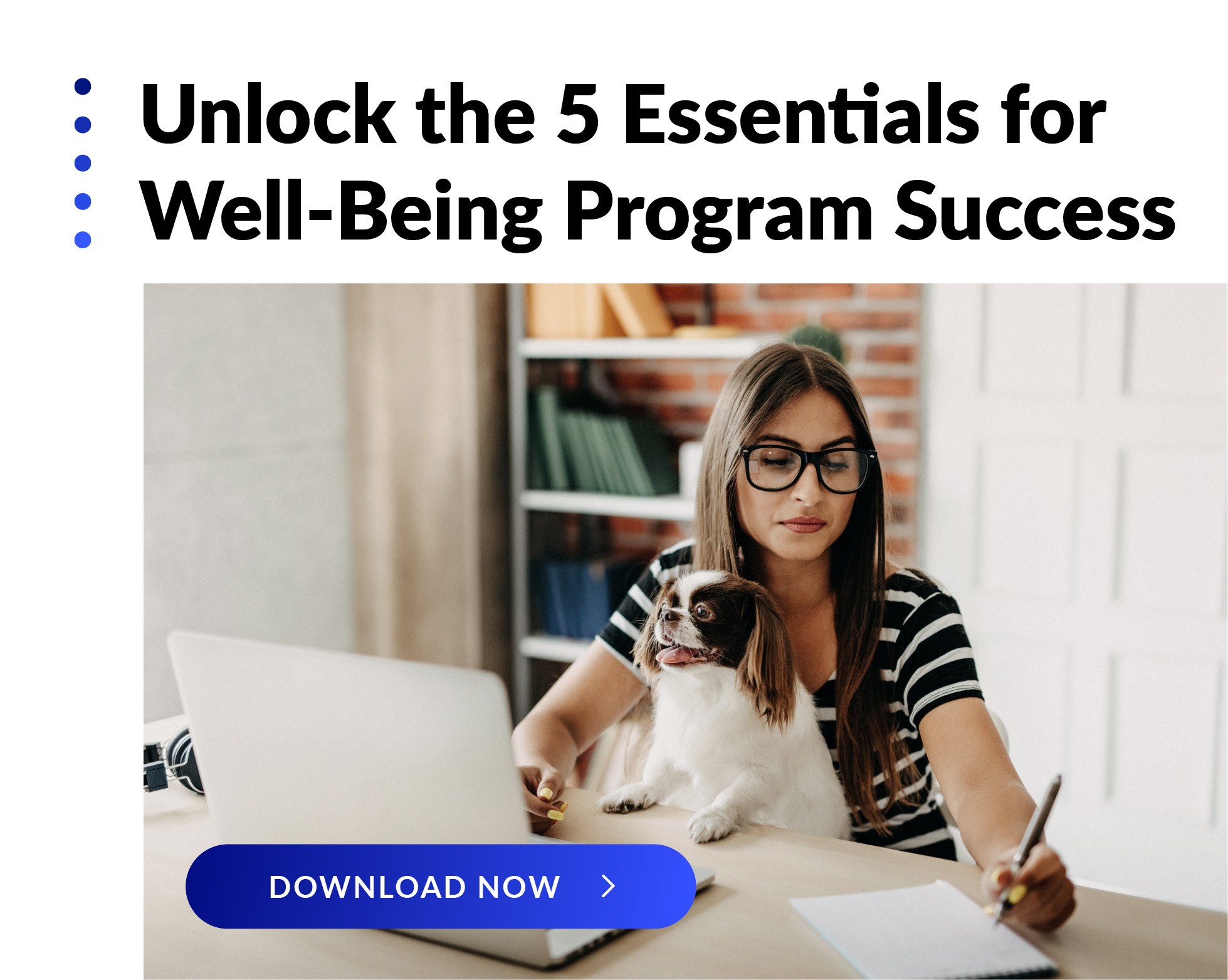 Health assessments are a popular tool used to help organizations and employees gain insight into their current health. However, not all health assessments are created equally. We talked with Ron Z. Goetzel, Ph. D., a member of our Clinical Advisory Board, about what employers should look for in a health assessment and what they should expect from the results. Here’s our conversation.
Health assessments are a popular tool used to help organizations and employees gain insight into their current health. However, not all health assessments are created equally. We talked with Ron Z. Goetzel, Ph. D., a member of our Clinical Advisory Board, about what employers should look for in a health assessment and what they should expect from the results. Here’s our conversation.
Recently, we revamped our health assessment as part of our transition to the WebMD ONE platform. Dr. Goetzel played a critical role in creating the ONE Assessment, which includes new question sets, an updated scoring algorithm, and a cleaner results page. As a result, Dr. Goetzel has some great insight as you consider what your organization’s health assessment will look like in 2021.
What can a health assessment tell organizations about their population? In other words, why would they want to offer it?
In my opinion, the health assessment is the cornerstone of any well-being program. It’s really the first step in the process and gives us real data we can use to target the right programs. I see three reasons to offer it:
1. It provides an opportunity for participants to improve their health.
The assessment helps individuals learn about where they stand when it comes to health and well-being—and which tools and resources they can take advantage of to make positive changes. Essentially, it offers participants a built-in mechanism to direct their activities moving forward.
2. When structured properly, the health assessment can direct or triage the individual into the next intervention or counseling phase.
If they have a health concern, there is automatically a resource they can reach out to—whether that’s a website, live health coach, or digital chat. We can also easily triage individuals into the right program, such as weight loss or diabetes management.
3. It allows for health data collection and monitoring for an employer.
The health assessment is the fastest and cheapest way to collect information from your populations. In many ways, it’s complementary to other data, like insurance claims. If the results show significant health risks, it’s a way to predict what services may be needed down the road and allow you to see what’s happening over time. For example, are cholesterol levels going down or trending up?
What are some best practices when it comes to the health assessment questions themselves?
To track risk factors over time, I feel the questions should be consistent. They should also be easy to understand and short, so participants don’t struggle through them. As we created the new ONE Assessment, our Clinical Advisory Board members and Johns Hopkins University partners extensively reviewed all the questions, answers, and algorithms to ensure brevity, ease of understanding, and alignment with clinical factors.
How have health assessments evolved over the years? Are there things we ask about now that weren’t included before?
Yes. In the past, we tended to focus on physical health—risk factors for developing chronic conditions, exercise, nutrition, tobacco use, and other details. We are still asking those important questions, but the ONE Assessment layered in new aspects of physical health, like sleep quality, fatigue, alcohol use, pain management, prescription drug use, and dental and vision concerns.
Importantly, we are also now addressing some social determinants of health. For example, we know that sex and gender, as well as ethnic origin, can influence health, so we ask questions about that. We also touch on mental health concerns like depression, anxiety, stress, and social connectedness—this is really a brand new area for health assessments.
How do you feel about offering an incentive for completing a health assessment?
Although a typical health assessment only takes 15 minutes or less to complete, I’m still in favor of offering an incentive to drive up participation. Quite simply, it gets people to do it and many will start their journey to better health because of it. So, maybe a $25 gift card, a credit towards medical premiums, anything that will get someone to sit down and take the assessment.
Why do some employees push back and not want to take the health assessment?
The main issue is that participants are afraid that the information they share is not confidential, and their employer may find out about it. The truth is that the employer cannot receive an individual’s data, and reports are masked to preserve confidentiality.
Another issue is the general concern about data breaches. And while this can happen, you have to reassure people that every precaution is being taken to protect their personal health data. WebMD Health Services has received the gold standard in health data security—the HITRUST CSF Certification—which gives our participants that extra assurance.
Lastly, people often just don’t understand why they should take the health assessment. What’s in it for us? In the past, people viewed health assessments as a scare tactic—a way to uncover health risks and pressure the employee to engage in a particular program.
Now that the health assessment is more holistic, including social and emotional health, we need to make sure people know what they could gain by completing it. For example, explaining how important it is to receive a big picture view of their total health can go far in convincing people to complete the assessment. We also need to present the results clearly so people can understand them and take action.
Is there an optimal time and frequency to administer the assessment?
We recommend asking employees to take the assessment once a year, around the same time of year. We usually like to see about a 12-month interval between baseline and follow-up assessments, so it’s good to have it as part of a routine—like open enrollment—so you can compare results year over year.
What insights can organizations expect from reporting?
Often, senior management just wants a number that shows how healthy the population is. The ONE Assessment gives that kind of scorecard number, which shows an aggregated summary view and includes recommendations for interventions that can help to move the needle in the right direction. It can also provide a cohort view that shows the same group of individuals over time—this is a way to get more granular and see how people’s health is improving from year to year.
Reports provide incredible insights into health trends over time. If, for instance, reports indicate that more people are becoming at risk for diabetes, it allows an organization to plan offerings that can help lower that risk. On the other hand, if reports indicate that the risk of a diabetes diagnosis is trending down, an organization can learn that their current offerings are likely working, and that they can continue offering and promoting the programs that help in this area.
What else should employers and health plans look for when choosing a meaningful health assessment?
A few things come to mind: brand name recognition; a good, honest, and current reputation; linkages to Consumer Reports on Health; and clinical backing. Employers and health plans should also know how the health assessment was created—or the methodology—and the backgrounds of those who helped develop it.
Is there anything else you’d like to share?
Sure. Health assessments alone don’t necessarily lead to better health—there has to be good communication about it before and concerted follow-up after, whether that’s with counselors, health coaches, through motivational techniques, or other modalities. Improving health is all about changing behavior, and that’s not an easy thing to do by yourself—you need the right support to create new lifelong healthy habits.
Our closing thoughts.
A health assessment is a great tool for both organizations and individuals. Organizations can understand aggregate health risks and target the right programs to their populations. At the same time, individuals can see a current picture of their health and receive recommendations to improve their well-being. But to get the best possible results out of the health assessment, organizations should ensure that they’re choosing the right health assessment—one that is robust, holistic, and clinically-backed—and implement the appropriate participant follow-up.
For more information about our new ONE Assessment, contact us at connect@webmd.net.




